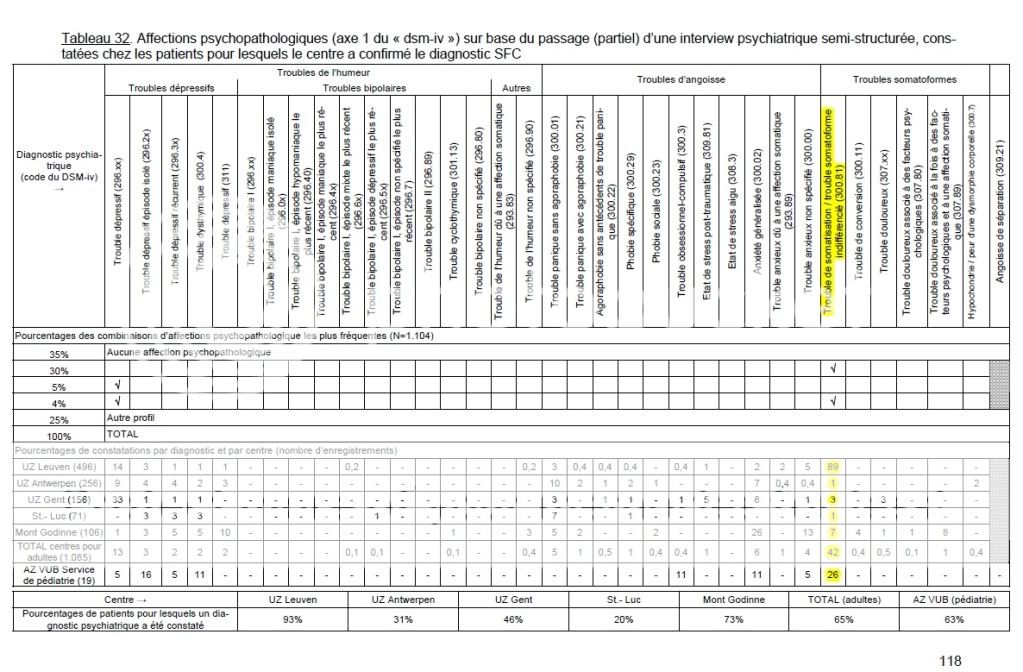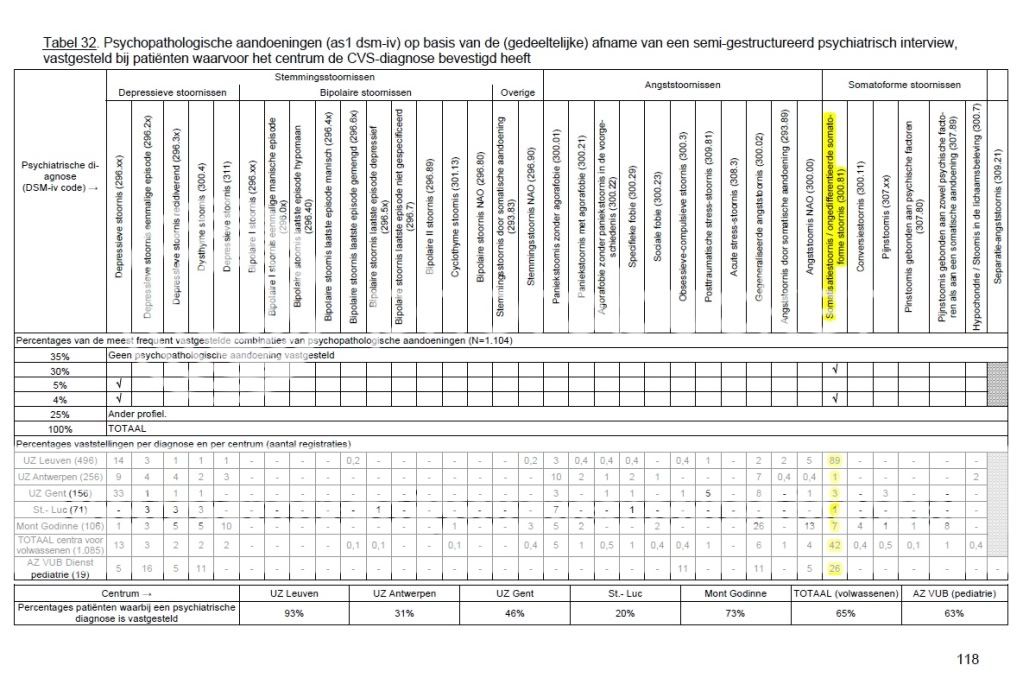Marco
Grrrrrrr!
- Messages
- 2,386
- Location
- Near Cognac, France
Dolphin kindly suggested that I repost this as a separate topic for discussion.
I'd initially posted this on the thread discussing comments made by members of the biopsychosocial school (Peter White specifically) which may provide a clearer insight into their attitudes to ME/CFS.
These are excerpts from a presentation given by Peter white in 2009 :
This is essentially the core of the biopsychosocial model of ME/CFS. No physical abnormalities are found (the doctor cannot explain the symptoms), there is (by some accounts) high co-morbidity of depression, ergo self reported symptoms have no physical basis and arise as a consequence of mental distress.
A 'classic' case of a psychosomatic illness.
Except 'psychosomatic' as used today is a corruption of the initial intent of those psychiatrists that first described the phenomenon.
This paper is from the journal Biopsychosocial Medicine :
Symptoms of somatization as a rapid screening tool for mitochondrial dysfunction in depression
Far from a multitude of vague and varying symptoms being highly suggestive of a psychosomatic disorder as is often stated as an accepted fact in some quarters, somatic symptoms occurring in conjunction with depression is actually highly suggestive of a mitochondrial disorder.
The authors suggest that a small subset of questions from the Karolinska Scales of Personality questionnaire can be used to effectively distinguish those patients whose depression, as well as somatic symptoms, are likely to have arisen from a mitochondrial disorder.
Here are the six KSP questions used as the screening tool :
If you have co-morbid depression and score two or more of these items as Applies Completely the authors suggest that you are likely to have a mitochondrial disorder.
http://www.bpsmedicine.com/content/2/1/7
Perhaps Peter White doesn't subscribe to 'Biopsychosocial Medicine'?
I'd initially posted this on the thread discussing comments made by members of the biopsychosocial school (Peter White specifically) which may provide a clearer insight into their attitudes to ME/CFS.
These are excerpts from a presentation given by Peter white in 2009 :
What helps occupational rehabilitation when the doctor cannot explain the symptoms?
Peter White
Agenda
Symptom defined illnesses (SDIs)
Risk (OR) of depressive illness with
chronic physical disorders
CFS 7.2
This is essentially the core of the biopsychosocial model of ME/CFS. No physical abnormalities are found (the doctor cannot explain the symptoms), there is (by some accounts) high co-morbidity of depression, ergo self reported symptoms have no physical basis and arise as a consequence of mental distress.
A 'classic' case of a psychosomatic illness.
Except 'psychosomatic' as used today is a corruption of the initial intent of those psychiatrists that first described the phenomenon.
This paper is from the journal Biopsychosocial Medicine :
Symptoms of somatization as a rapid screening tool for mitochondrial dysfunction in depression
Multiple medically-unexplained somatic complaints, usually associated with mood symptoms, is currently designated as "somatization" under the Diagnostic and Statistical Manual (DSM) system used to classify mental illness.
The French physician Briquet, in his 1859 treatise on hysteria, described mood as well as a long list of somatic symptoms among his 430 patients, including migraine, abdominal pain, muscle pain, palpitations, restlessness, hyperesthesias, anesthesias and fatigue [1]. While Briquet assumed that his patients' symptomatology had a biological basis, many mental health providers today practice under the assumption that prominent somatic symptomology among depressed individuals are of psychic origin, a theory often attributed to the work of Sigmund Freud.
The popular concept of the symbolic conversion of psychic conflicts into somatic symptoms by the unconscious mind was presented by Freud and Breuer in order to explain the specific somatic manifestations reported, not necessarily their initial pathogenesis.
Somatic symptomatology is common in depression, and is often attributed to the Freudian-inspired concept of "somatization". While the same somatic symptoms and depression are common in mitochondrial disease, in cases with concurrent mood symptoms the diagnosis of a mitochondrial disorder and related therapy are typically delayed for many years.
A short screening tool that can identify patients with depression at high risk for having underlying mitochondrial dysfunction is presented
Far from a multitude of vague and varying symptoms being highly suggestive of a psychosomatic disorder as is often stated as an accepted fact in some quarters, somatic symptoms occurring in conjunction with depression is actually highly suggestive of a mitochondrial disorder.
The authors suggest that a small subset of questions from the Karolinska Scales of Personality questionnaire can be used to effectively distinguish those patients whose depression, as well as somatic symptoms, are likely to have arisen from a mitochondrial disorder.
Six items of the Karolinska Scales of Personality (KSP) were found to differentiate among 21 chronically-depressed Swedish subjects with low versus normal muscle ATP production rates. A screening tool consisting of the six KSP questions was validated in the relatives of American genetics clinic patients, including in 24 matrilineal relatives in families with maternally inherited mitochondrial disease and in 30 control relatives.
Here are the six KSP questions used as the screening tool :
My heart sometimes beats hard or irregularly for no real reason.
I often have aches in my shoulders and in the back of my neck.
My body often feels stiff and tense.
I think I must economize my energy
In order to get something done I have to spend more energy than most others.
I feel easily pressured when I am urged to speed up.
The KSP has four possible choices for each item: "Applies Completely" (score 4), "Applies Rather Well" (score 3), "Does Not Apply Well" (score 2) and "Does Not Apply at All" (score 1). Since some degree of somatic symptoms are nearly universal, yet in our experience are highly exaggerated in patients with mitochondrial disorders, we evaluated the items based upon the maximum score of 4 ("Applies Completely") versus all other scores.
If you have co-morbid depression and score two or more of these items as Applies Completely the authors suggest that you are likely to have a mitochondrial disorder.
We propose that energy depletion constitutes at least part of the inherited biological predisposition towards the development of depression with somatization predicted by Freud. Furthermore, although our present findings require additional validation in varied groups of patients, our preliminary data suggest that a small number of specific somatic-related questions, inquiring for symptoms that likely would be instantly recognizable by Briquet and Freud, can be constructed into a valid screening instrument for cases at high risk for having a component of energy metabolism in their pathogenesis, or "mitosomatic" illness.
http://www.bpsmedicine.com/content/2/1/7
Perhaps Peter White doesn't subscribe to 'Biopsychosocial Medicine'?


